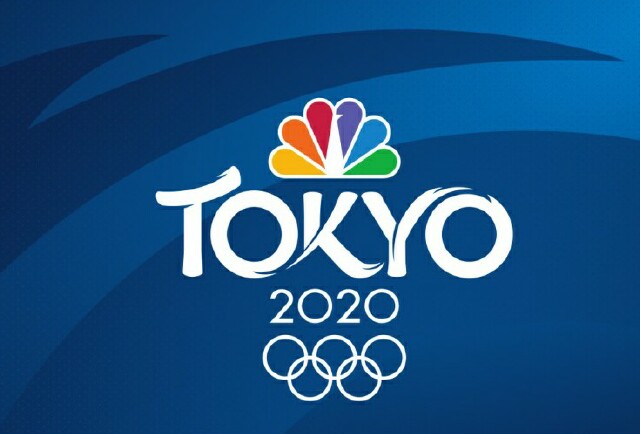Despite Decline in Linear Viewership, NBCU's Jeff Shell Says Tokyo Olympics Will Produce Profits

With more than 7,000 linear and digital hours, NBCUniversal's presentation of the pandemic-delayed Tokyo Olympics sits at the center of the media world through the closing ceremony on Aug. 8. Problem is, the world has become a much bigger digital and streaming place since NBCU covered the 2016 Summer Games from Rio de Janeiro in 2016.
Then, there's what NBCU CEO Jeff Shell called "a drumbeat of negativity" around the Tokyo Games on parent Comcast's July 29 earnings call -- the one-year pandemic-induced delay, the surge in COVID cases in Japan largely resulting in the absence of spectators, and "linear ratings being probably less than we expected."
While NBCU is touting record digital gains, including most-consumed days for its streaming entry Peacock, viewing is down substantially overall since 2016. That competition benefited from more live primetime coverage as Rio is just one hour ahead of the east coast, versus a 13-hour differential to Tokyo.
Starting with a loud (or was it a silent) thud of the Parade of Nations playing before an empty stadium, the opening ceremony for the Tokyo Games, combining live and curated coverage on NBC in primetime and digital outlets, averaged 16.9 million watchers. That marks the lowest inaugural Olympic audience since the 1988 Seoul Games.
Things have improved to some degree since then. The Tokyo Games averaged a Total Audience Delivery (linear, plus digital) of 17.2 million in primetime over the first six nights through July 28. But that figure is almost 40% short of the 28.2 million average during the corresponding span in Rio.
NBCU's cause certainly hasn't been helped by the face of the games, gymnastic megastar Simone Biles, withdrawing from the team and all-around event amid concerns about her mental health and "twisties" that were compromising her safety and performances.
Perhaps ironically, NBC Sports' publicity staffers have pointed out that for the first five nights through July 27, the Olympic TAD averaged 17.5 million viewers, a pace that would make the Tokyo Games and NBC's Sunday Night Football the two most-watched primetime shows in 2020-21.
If top Olympic advertisers like Toyota, Visa and Geico don't find enough compensatory solace through the inventory NBCU held back for audience deficiencies within the Games, the make-goods could spill over into the NFL property.
Still, Shell told the analysts the Tokyo Games will finish in the black, although he didn't share a number. At a virtual Credit Suisse conference last month, Shell said Tokyo, depending on the viewership, could become NBCU's most profitable Olympics. The Rio Games holds that distinction with $250 million.
Perhaps worthy of the best Olympic hyperbole, Shell also informed the Wall Streeters that "it's impossible to understate the importance of the Olympics to NBCUniversal. It's not really financially. It's more operationally across the company." Shell went on to say that after he and Comcast Chairman and CEO Brian Roberts returned from Tokyo, he visited the team working in NBC Sports' facility in Stamford, Conn., where 4000 people are engaged in the Games, their "life work."
The growing reliance on remote coverage through enhanced technology and attendant savings on T&E budgets -- not to mention the $1.2 million for primetime 30-second spots -- evidently will print some green, if not the Olympic gold NBCU may have anticipated.
Also worth noting:
• During the earnings call, Shell teased there was big news and the financial mavens should watch on NBC, later that night. Turns out Sunisa Lee had succeeded Biles as the all-around winner. Throughout the day, coverage on NBC, USA and NBC Sports Network invited viewers to check out Lee's feat. Later today or tomorrow, we will see what TAD calculus came into play.
On Tuesday July 27, the night Biles was expected to again lift the U.S.A. gymnastics' team to the top of the podium, NBCU's platform delivered a TAD audience of 16.2 million, huge by today's standards, but off 55% from the 36.1 million on the corresponding night and American-winning event from Rio.
While the Tokyo Games have largely been free of sports competition save for MLB games, July 29 fielded plenty of action. For the first time, ABC joined ESPN in televising the NBA Draft. On the soccer pitch, Univision and Fox Sports 1 covered the Gold Cup semifinals in which the U.S. edged 2022 World Cup host Qatar and Mexico took Canada's measure in stoppage time. The CONCACAF rivals meet in the final Sunday night.
Facing that formidable fare, and with Lee's accomplishments covered earlier in the day on Peacock and chronicled everywhere else in the interim, it will be interesting to see how much viewing interest there was in witnessing her vault to the top.
• Dropping the first set 1-6, Alexander Zrevev lost his serve to go down 2-3 in the second. Stunningly, Zrevev took 10 of the 11 final games to crush World No. 1 Novak Djokovic's pursuit of the Golden Slam early this morning on the east coast. That left fellow German Steffi Graf -- dubbed "Fraulein Forehand" by the late great Bud Collins -- as the sole possessor of the Golden Slam, when she added Olympic gold in Seoul to her triumphs at tennis' four majors in 1988. Her husband, Andre Agassi, picked up tennis gold eight years later at the Atlanta Games.
Now, the Djoker, who has won the Australian Open, Roland Garros and Wimbledon, will try to add the 2021 U.S. Open to his racquet and match Rod Laver's two calendar Grand Slams in 1962 and 1969 -- and perhaps put an end to the discussion that he, not Roger Federer or Rafa Nadal, is the tennis GOAT. (Zverev squares off against Russian Karen Khachanov for Tokyo gold at 11 p.m. ET on July 31.)
• As to the advertising GOAT of the Games, thus far it's Microsoft Teams.
Caelab Dressel out-touched Australia's Kyle Chalmers by six-hundredths of a second to win the men's 100-meter freestyle on July 28. Dressel stood dumbstruck in the pool, a man at once trying to process that he realized his dream, but not quite comprehending that years of sacrifice and hard work had actually coalesced in this moment. Later, as part of an interview framed within Microsoft Teams, Dressel broke down amid his expressions of love for his family and wife Meghan, as cameras chronicled the watch party in their town.
The emotional session was trailed by a 30-second spot for the video conference communication system.
Click the social buttons to share this content with your friends and colleagues.
The opinions and points of view expressed in this content are exclusively the views of the author and/or subject(s) and do not necessarily represent the views of MediaVillage.com/MyersBizNet, Inc. management or associated writers.


